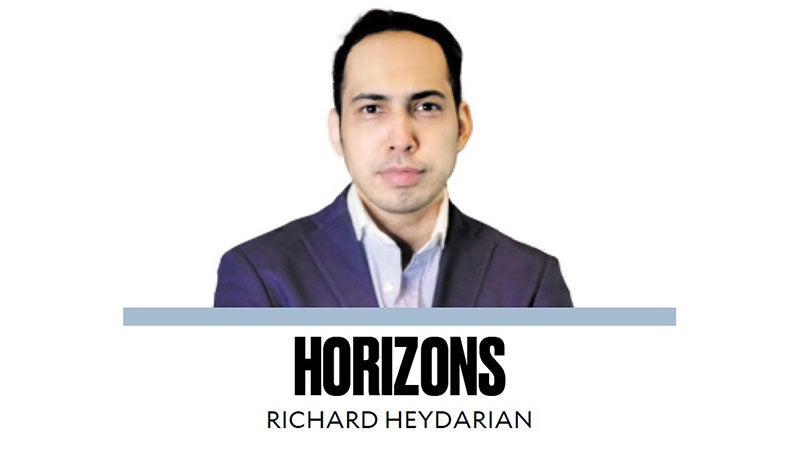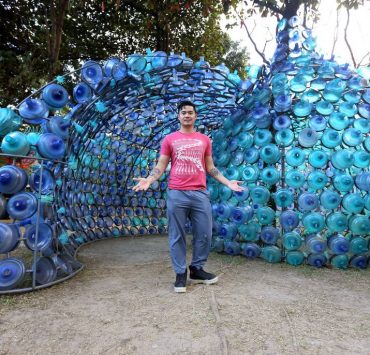End of UniTeam: A brewing civil war?

Philippine politics has entered the realm of absurdity with vengeance and verve. Not long ago, countless folks foolishly cheered on the controversial shutdown of ABS-CBN at the height of a devastating pandemic.
Anyone with a functioning gray matter would know that the virtual purge of the country’s legacy media outlet from the airwaves would not have been possible under “normal” conditions. By normal, what I mean is the presence of a rule of law as well as a constitutionally compliant commander in chief.
Regardless of the supposed merits of the case against the renewal of ABS-CBN’s franchise, the manner by which its executives were publicly humiliated and its legacy systematically berated underscores the vicious politicization of a supposedly routine, legalistic process. Under President Rodrigo Duterte—a medieval petty tyrant, who luckily found himself at the helm of a 21st-century democracy—what we saw was a classic case of rule by law, namely the weaponization of existing laws to serve a particular political interest.
While some rivals may have had their reasons to delight in the downfall of the country’s largest media outlet, the reality is that the Philippines’ media landscape changed forever—and arguably for the worse—after ABS-CBN was bumped off the airwaves. Even worse, how the giant media network was cut down to size set a perilous precedence. All of a sudden, the Fourth Estate was a shockingly vulnerable target for politicos.
Barely three years later, another media outlet is facing an even starker prospect. Following a series of spirited committee hearings at the House of Representatives, the controversial Sonshine Media Network International (SMNI) could see its franchise revoked altogether in the near future.
Two of its most prominent anchors, meanwhile, were humiliated by feisty legislators and forced into detention after refusing to divulge the source of seemingly baseless allegations against the House leadership. In response, they tried to pull off their own “Mandela moment” by supposedly engaging in a “hunger strike,” while posturing as modern-day “heroes.” The antics were greeted with mockery and laughter online.
The problem is that SMNI is nothing like ABS-CBN. Not only does it lack the latter’s panache and decades-long legacy of world-class journalism, but the very “journalism” of its star anchors and overall modus operandi has come under question.
The Sotto law, which provides legal protection for journalistic confidentiality, was arguably not applicable in this case since the controversial network was neither relying on accredited journalists nor verifiable evidence for its faux exposés.
Netizens were quick to point out the “poetic justice” behind the impending downfall of the former president’s home network, which is allegedly owned by his pastor friend from Davao. But critics must be careful what they wish for since yet another perilous precedence could be set here.
If anything, something far bigger than the fate of an upstart, Philippine-style Fox News channel is at stake. Just as SMNI faced an existential threat, Vice President Sara Duterte essentially echoed the controversial network’s alt-right line when she publicly and directly criticized the Marcos administration’s peace negotiations with communist rebels as a Faustian bargain.
The episode reflected three important things. First, she no longer seems to have a direct line to the President in any meaningful sense of the word, notwithstanding President Marcos’ rhetorical reassurances.
Second, she is dispensing with any plausible deniability: for more than a year, the Vice President personally maintained cordial ties with the President under the fig leaf of “unity,” while her father and his proxies conducted the public relations offensive against the Marcos administration.
At times, the former president practically lawyered for his increasingly besieged daughter. Whenever the Vice President contradicted the President’s policy preference, notably calling for a ceasefire in Gaza in October, she did it with considerable subtlety. And then, everything changed. Following the release of former senator Leila de Lima, her father’s most ardent critic, and the potential entry of the International Criminal Court into the picture, she decided to drop the gauntlet.
And this brings us to the most important point: she is likely preparing her base for a potential long-term struggle against an emerging grand coalition composed of Marcos loyalists, centrist politicos, liberal reformists, and even some progressives, who all have an axe to grind against the Dutertes.
rheydarian@inquirer.com.ph

















